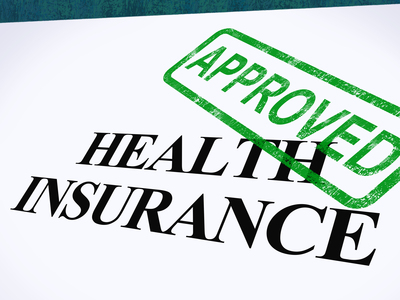Pa individual health insurance plans are available at very affordable rates. Most major Pennsylvania companies offer a large selection of personal policies to meet the ever-changing needs of consumers both on and off the Marketplace. Whether you’re not working, self-employed, an early retiree, or uninsured, we will find the best health insurance for you. When purchasing private Pennie “Exchange” plans, there are several new options, and a generous federal instant tax credit.
Typically, in Pennsylvania, United Healthcare, Aetna, UPMC, Blue Cross Blue Shield, Highmark, Keystone, Capital BlueCross, Geisinger and Independence Blue Cross have the most competitive private and Group rates. Oscar and Ambetter, the newest Exchange carriers, offer plans in limited areas. Most individual policies are not medically underwritten, so pre-existing conditions are covered and do not increase your premium. Senior Medicare (Advantage, Supplement, and Part D prescription drug) coverage is offered to help reduce out-of-pocket costs. NOTE: Many carriers (including UnitedHealthcare and Aetna) offer Group and Medigap products, but do not underwrite private individual healthcare plans.
Patent Protection And Affordable Care Act (Obamacare)
It’s been about 11 years since the legislation was signed and implemented. Here in the Keystone State, many persons have been helped, and many persons have been hurt, by losing “grandfathered” plans they expected to keep. The two biggest positive changes are the availability of federal subsidies to help lower rates, and the elimination of pre-existing condition clauses. Access to quality Pa coverage has never been higher, and Medicaid expansion has helped many low-income households. CHIP provides comprehensive medical coverage to many children and young adults, while Medicare and Medicaid help Seniors and low-income households.
However, provider networks are not nearly as robust as they were during the pre-Obamacare days, and several new taxes and penalties have a direct or indirect impact on consumers. Despite all of the changes, many affordable options are available, and our website helps you find and compare the best options, and easily enroll. By 2022, additional plans with increased flexibility may be offered if Congress can pass specific legislation. More robust short-term plans are unlikely to be introduced unless the Pa DOI approves additional options. The duration of these plans may reduce to less than 12 months.
Different Types Of Individual Healthcare Plans
The three types of Pa individual health insurance are “Catastrophic,” “Comprehensive,” and “Health Savings Accounts (HSAs).” Of course, the newer terminology is “Metal” plans that are available on the State Marketplace. Bronze, Silver, Gold, and Platinum are your new benchmark definitions for available policies. Small and large business owners also have additional alternatives through the “SHOP” (Small Business Health Options Program) Exchange. Tax credits for small businesses are offered. Employees can opt out of employer-provided coverage and purchase plans privately. However, a federal subsidy may not be offered if Group healthcare benefits were declined.

Catastrophic
Catastrophic plans previously only covered the major medical expenses, and rates were usually very low. However, they have evolved in recent years to include three non-preventative office (primary-care physician) visits that are typically subject to copays of between $20 and $50. However, specialist visits, which are often more expensive, generally require a large deductible ($8,550 or more) to be met first. Although generic drugs may be offered with only a copay, most other Tiers require a deductible to be met.
Also, unless you are under age 30, you will not qualify for these types of plans. A financial “hardship exemption” is sometimes granted if you can prove you are homeless, experienced domestic abuse or violence, filed for bankruptcy within the last six months, recently had a family member die, or received a utility company shutoff. There are also several additional exceptions that can be granted.
Individual and family catastrophic plans continue to provide preventive benefits that are not subject to a deductible or any other out of pocket costs. Once a policy is approved, you can immediately utilize these benefits. Many plans for young adults (under age 30) provide three free primary-care physician visits and discounted or free telemed online coverage.
Short-Term Contracts
If you want the cheapest price, this is the type of contract you should have. Many temporary needs are covered by short-term policies. For example, if you have guaranteed medical coverage in 90 days, and just need a cheap contract to fill the gap, then perhaps a temporary solution is the best idea. BIG CAVEAT: They are not considered compliant since pre-existing conditions are not covered, federal subsidies do not apply, and prescription drug and mental health benefits may be limited. UnitedHealthcare provides several popular temporary plans including Medical Copay Select, Medical Plus Select, Medical Plus Elite, and Medical Value Select.
Temporary medical plans require limited medical underwriting and a physical or extensive application is never required. The initial payment is typically for only the first month, and subsequent billing can be made on a monthly basis. A spouse and dependents can be added to the same policy as the primary insured, unlike a Medicare Supplement plan. The rate is guaranteed until the next policy renewal. However, once an applicant reaches age 65 or becomes Medicare-eligible, a temporary plan may not be available.
Short-term plan monthly rates are shown below. Applicant is a 40 year-old non-smoking male. Plan is UnitedHealthcare Short Term Medical Value Select A $5,000 Deductible)
Allegheny County – $106.60
Cambria County – $125.20
Dauphin County – $125.20
Erie County – $125.20
Fayette County – $106.60
Lancaster County – $115.60
Northampton County – $125.20
Philadelphia County – $115.60
Comprehensive
Comprehensive plans offer rich office visit and prescription coverage and are the most expensive type of Marketplace coverage. Platinum and Gold-tier plans feature smaller copays, coinsurance, and deductibles, but do not necessarily provide richer benefits. Like Medicare benefits, most policies for persons under age 65 are closely standardized, with 10 “Essential Health Benefits” required.
The removal of lifetime caps (or maximums) on all qualified policies has eliminated the possibility of a specific illness or injury forcing the insurer to stop paying benefits until the following calendar year. Although the cost of several new specialty drugs is incredibly expensive (Soliris, for example, costs more than $400,000 per year), insurers, drug manufacturers, and patients generally find a way to make the prescription available. As patents expire, cheaper generic options become available. Also, the cost of many Tier 2 and Tier 3 drugs has reduced.

How To Lower Comprehensive Plan Premiums
Raising the deductible on the major medical items can keep the premium quite affordable. Specific personal insurance plans in Pennsylvania will offer a lower rate, by limiting the number of covered office visits. These are issued under the catastrophic-tier (discussed above) and generally limit the number of covered non-preventative office visits (per person) to three per year. Increasing deductibles and copays on ER and Urgent Care visits will also lower rates..
Another available option to reduce premiums is limiting the type of prescriptions that are covered by copays. By selecting a plan with a deductible on most non-generic drugs, rates will reduce. However, because of required essential benefits, you can not remove many benefits, including non-generic drugs. But by selecting plans that have higher copays on prescription coverage you may not use, premiums will reduce.
Comprehensive policies are very similar to the options you generally receive from your employer. HMO, EPO, and PPO options are offered along with some blended options that utilize the best features from both concepts. Generally, you find these plans in the Gold and Silver tiers. Bronze-tier plans often have maximum out-of-pocket costs as high as $8,550. $0 deductible options are also available but the maximum out-of-pocket costs and coinsurance are high.
Health Savings Accounts
HSAs, a popular private insurance plan, are most effective when major medical and preventative coverage are priorities. Rates are often quite low, and additional tax advantages help make the HSA an attractive option to consider. The amount of premium saved by purchasing the lower-premium higher-deductible policy can be deposited into an account to pay for qualified medical expenses.
You do not forfeit any of your deposited money if it is not used by the end of the year. You can find more Health Savings Account information here. This type of policy continues to be very much in demand, since it is still one of the least expensive ways to keep your premiums low. If your household income is above $100,000 (or close to that amount), an HSA should be at the top of your wish list! “Bronze” Tier plans often feature several HSA options.
HSA Plans Available In Pennsylvania
Ambetter Essential Care 2
Ambetter Balanced Care 25
Oscar Bronze HDHP
Highmark Together Blue EPO Bronze 6900 HSA
Highmark my Direct Blue EPO Bronze 6900 HSA
Highmark Together Blue EPO Silver 3450 HSA
Highmark my Direct Blue EPO Silver 3450 HSA
Geisinger Marketplace All-Access QHDHP PPO 6850
Medicare Supplement Coverage For Seniors
If you are approaching or have reached age 65, your primary medical benefits will be provided by Medicare, or, if you choose, a private insurer through a Medicare Advantage plan. Unless you are receiving a very large federal subsidy for your existing policy, premiums should reduce while coverage remains very strong. Also, you do not have to purchase a Medigap plan. In many households, the extra cost may not justify the benefits received.
NOTE: The Open Enrollment period for Seniors is different than the Marketplace OE period. It begins on October 15th and ends on December 7th each year. During that time, you can change (although not required) existing coverage or purchase a new plan. However, once you reach age 65, and are covered under Part B, for the next six months, you may choose any available supplementary coverage offered in your County.
Get Quotes Now!
Pa individual health insurance quotes are available by using the “Get Free Quotes” button at the top of this page. Only the highest quality Pennsylvania companies are considered. You can view, compare and even purchase your ideal benefits. We believe you’ll find our website quite dependable and a great resource for free helpful information.
When shopping and comparing Pa Marketplace plans, you can enroll in less than 20 minutes, and choose a policy that is subsidized, or an alternative policy that does not receive federal funding.








